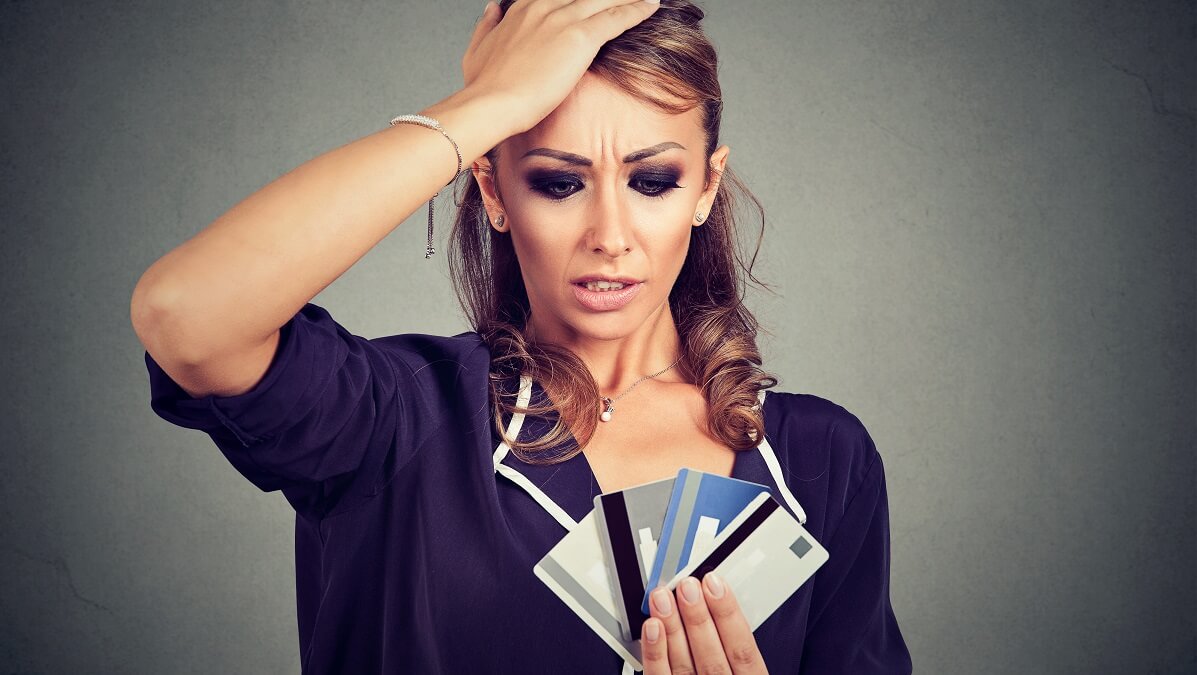Last week YourLifeChoices highlighted the plight of vulnerable people left to cope in an increasingly cashless society. Affected people included older citizens in rural towns left without a local bank.
Yet the effects of shifting to a cashless society extend even further than that relatively small group. There is mounting evidence to suggest that the ability to purchase items without cash increases the likelihood of spending more.
Researchers call this phenomenon the ‘cashless effect’. In simple terms, it means that you are more likely to buy something if physical cash payment is not required.
The option to swipe your card, wave your phone or click a button onscreen makes a big difference. And for some, that difference can be dangerous.
What’s the science behind the cashless effect?
On the surface it might seem that the science behind this should be relatively straightforward. The long prevalent theory centres on what’s known as the ‘pain of payment’. This is the feeling generated by handing over of physical cash – especially larger amounts – when purchasing an item.
The suggestion is that this physical requirement pulls a ‘handbrake’ in our minds. As we pull out a large wad of $50 or $100 notes, we’re more likely to pause and ask: “Whoa! Do I really want to be spending this kind of money?”
No such mechanism comes into play when we are swiping a card or waving a phone, though. Such a pause will likely come later, when the credit card bill arrives, or you check your bank balance.
That theory makes sense, but more recent studies suggest there could be something else at play. Rather than simply releasing a handbrake when making a cashless payment, we might actually be stepping on the accelerator.
Researchers at MIT have uncovered evidence to support this alternative theory. They conducted a study comparing the brain behaviour of buyers paying by cash or credit card. In particular, they honed in on the ‘reward’ region of the brain.
This is the part of the brain activated by pleasure, reward, and anticipation of these things. It is strongly associated with addiction. And it turns out cashless payment is far more likely to activate this part of our brain than paying with cash.
Can we guard against the cashless effect?
The simple answer is, not easily. Research shows that even seeing the logo of a credit card company can trigger this part of our brains. Remaining disciplined and ‘aware’ when making cashless purchases will help. But we all know how difficult than can be.
Of course, making cashless purchases is not inherently bad, provided you can afford it. And moving towards a cashless society does have benefits, such as convenience for buyers and sellers. It also makes the crime of money laundering more difficult to perpetrate.
But, like all good things, it comes with a warning. Before swiping that card, waving that phone or clicking that ‘complete purchase’ button, stop for a moment. Then ask yourself, would I be happy to pay for this in cash?
What do you think about our increasingly cashless society? Would you prefer to continue using cash? Let us know via the comments section below.
Also read: Cashless Debit Card program set to end
Disclaimer: All content on YourLifeChoices website is of a general nature and has been prepared without taking into account your objectives, financial situation or needs. It has been prepared with due care but no guarantees are provided for the ongoing accuracy or relevance. Before making a decision based on this information, you should consider its appropriateness in regard to your own circumstances. You should seek professional advice from a financial planner, lawyer or tax agent in relation to any aspects that affect your financial and legal circumstances.


Exactly, as I’ve previously stated, the majority of people using credit cards are being robbed blind. I’M STAGGERED, that the GOVERNMENT IN THEIR WISDOM of putting warnings on everything you can think of, (tobacco packets, cigarette packets, food packets, wine bottles, etc.), haven’t put warnings and spent a fortune on advertising (TAXPAYER FUNDED ONCE AGAIN) to bring to the attention of the POOR UNEDUCATED AUSTRALIAN PUBLIC, that CREDIT CARDS are a Super HAZARD FINANCIALLY, causing another one of their favourite catchphrases these days (Mental Health ISSUES) as well as Major FINANCIAL ISSUES. Nowonder people can’t pay their bills, they buy something for $1,000 on credit and eventually pay it off to the tune of $3,000 or $4,000. Keep cash, get rid of credit cards, (nobody needs that much convenience), and here’s a wild idea, save for what you want and buy it when you can afford it. Strangely enough that recipe has been working for centuries, up until the early 1970s. JACKA.
My thoughts exactly. If I really want an item that costs $1,000, I’ll save for it, and receive interest on the savings in the mean time. I’ve also had credit cards, and the temptation of having one, then paying it off and being charged interest to do it, was the main downfall of the 1980s. We wanted it now and hang the expense.
This is the reason why I take out my food and spending money IN CASH every fortnight.
You won’t ever see me waving or tapping to purchase anything ‘trivial’ like a hot chocolate, or donuts, takeaway food, etc.
If I don’t make the end of the fortnight with the cash I have on hand, then I just have to rethink what I’m spending the funds on – plain & simple.
My bank won’t give me a credit card, and to be honest, I really don’t want one. I certainly don’t want to be paying exorbitant interest rates, as I know that I certainly wouldn’t be able to afford to pay the credit card within the ‘interest-free’ period.